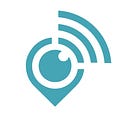Healthcare Transformation
Healthcare system has changed dramatically over the last ten years, primarily due to the emerging technologies and digitization of patient experience.
Hospitals have undergone massive and significant transformation. If it was viewed by the previous generations of physicians, they would have difficulties in recognizing the transformed status of the current healthcare system.
Those who are in the healthcare business probably know that keeping up with digital transformation in the healthcare sector can be overwhelming. Deciding on which emerging technologies are worth investing and getting an efficient team on board are not easy. Bringing changes are often the hardest part. It requires you to step out of your comfort zone and into the unknown. Adapting to the digital era invites a much more flexible and risk-taking mind set. It means letting go of your outdated business processes and trusting that disruption will yield big results.
Digital transformation is one of the strongest positive impacts of technology in the healthcare industry. Telemedicine, artificial intelligence (AI)- enabled medical devices and electronic health records are just a few concrete examples of the same. Innovation is the name of the game here, the mission is to streamline physicians’ work, optimize systems, improve patient outcomes, reduce human errors, and lower costs through amazing web and mobile experiences.
Unfortunately, the healthcare and pharmaceutical industries have lagged behind when it comes to implementing digital strategies. In fact, in a recent survey, only 7 percent of healthcare and pharmaceutical companies said they had gone digital, compared to 15 percent of companies in the other industries.
Since technology is improving day by day, patients get better treatment with virtual reality tools, wearable medical devices, telehealth, and 5G mobile technology. Doctors, on the other hand, can streamline their workflows using artificial intelligence-powered systems.
Big data is one of the features which came into the picture considering healthcare transformation. It aggregates information about a business through formats such as social media, e-commerce, online transactions, financial transactions, and identifies patterns and trends for future use. For the healthcare industry, big data can provide several important benefits such as lower rates of medication errors — through patient record analysis. Software can flag any inconsistencies between a patient’s health and drug prescriptions, alerting healthcare professionals and patients when there is a potential risk of a medication error.
Ten years ago, telling people they can reduce pain with a device similar to a video game would have garnered a lot of blank stares. In 2018, however, Virtual Reality (VR) is the masterwork of digital transformation in healthcare. It’s profoundly changing the way patients are being treated.
Another trend of digital transformation in healthcare is companies collecting their own health data from medical devices, including wearable technology. In the past, most patients were satisfied with undergoing a physical check-up once a year or consulting a doctor when something goes wrong. But in the digital age, patients are focusing on prevention and maintenance, and demanding information about their health more frequently. As a result, healthcare companies are being proactive by investing in wearable technology devices that can provide up-to-date monitoring of high-risk patients to determine the likelihood of a major health event.
Earlier, we touched on how big data help healthcare companies with predictive analysis about admission rates and help them properly staff their facilities. But another factor supporting digital transformation in the healthcare industry is predicting what all health setbacks will become major problems in the near future. Information aggregated through Big Data and other marketing sources can help the healthcare companies to develop healthy lifestyle recommendations for their patients.
The healthcare system is undergoing a seismic shift in how information is obtained and disseminated. Gone are the days when all medical information was under the lock and key of doctors and surgeons, and patients had to sign away their lives to access their own health information. However, with the development of technologies, all aspects of health records are just a click away for the consumers. Through tools such as online patient portals that provide medical test results, diagnosis and explanation of illness, patients are now becoming participants in their well-being.
